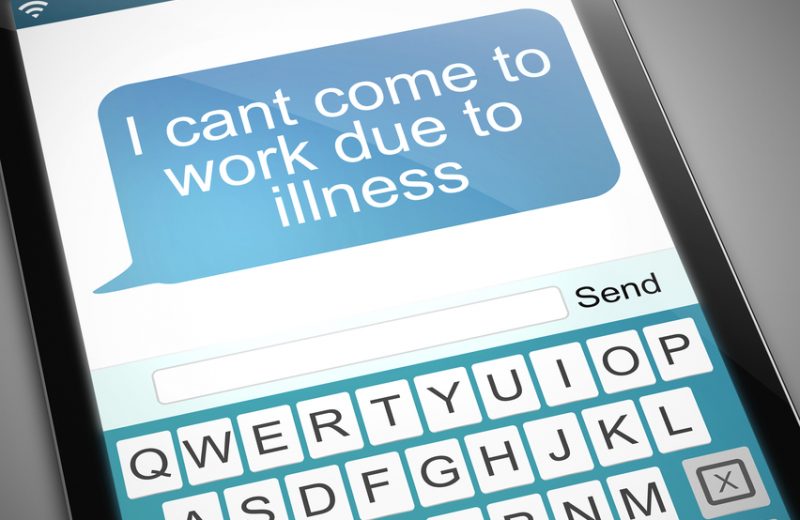Written by Sid Sidhu and Emma Treherne of NRA Legal
The holiday season is well and truly upon us and brings with it a number of public holidays that can be difficult to manage in the retail environment. With many public holidays falling on a week day this year, you may have noticed your employees calling in sick and taking advantage of a three-day weekend. This is a scenario that is all too familiar to our members, leaving the business short staffed on some of the busiest days in the year.
So what can you do when your employees call in sick and they are rostered to work?
1. Request reasonable evidence
A common misunderstanding, in the business community, is that employers can only request a medical certificate if a permanent employee has been absent from work due to illness or injury for two days or more.
However, under the Fair Work Act 2009 (Cth) (‘FWA’), an employer may request a permanent employee to produce evidence that would satisfy a reasonable person that the employee is not fit for work because of their illness or injury (the ‘Reasonable Person Test’).
In other words, you can request reasonable evidence such as a medical certificate, any time a permanent employee calls in sick. Be mindful of reading the FWA requirements with any relevant enterprise agreement clauses (detailing notice or evidence pre-conditions to paid sick leave) or policies covering the employee in question.
Employers who have not typically asked for such evidence after just one day’s absence may be at risk of legal action by suddenly changing their customs and practices. If this applies to your business, we advise you to communicate, in writing, to your employees, the company’s new policy on paid sick leave. This policy would include what evidence is necessary before permanent employees are entitled to paid sick leave. This policy must apply to all permanent employees equally and a copy should be made available to all employees within the workplace.
Further, your policy ought to stipulate the method required to inform management of the employee’s intended absence. This tends to have the effect of reducing the number of sick days taken, especially where employees are required to telephone senior management.
2. Investigate your employees
You would be at significant risk of an adverse action claim if you were to take or threaten to take disciplinary action, where an employee is absent from work due to illness or injury and has provided evidence that satisfies The Reasonable Person Test.
However, where an employee fails to comply with company policy or perhaps has been identified outside of work as misusing their sick leave, the employer will have grounds to commence an investigation process.
Importantly, allegations and supporting evidence must be put to the employee and their response must be obtained before determining an appropriate course of action.
3. Exercise caution
This is a highly complex area of law that is fraught with danger as there are multiple avenues for employees to seek redress. Members are advised to exercise caution and seek legal advice.
All circumstances of the case will need to be considered. This will include whether sufficient evidence exists to convince an employer, on the balance of probabilities, that misconduct has in fact occurred.
Further, the consequences of getting this wrong are likely to cause detriment to your business. The FWA specifically prohibits an employer from dismissing an employee for their temporary absence due to illness or injury.
Additionally, there are State and Federal laws which make it unlawful to discriminate on the grounds of disability, which can include a temporary illness.
It is also worth mentioning that in NSW, penalties of up to $11,000.00 may be issued where an employee has not freely elected to work on Boxing Day. This means your employees must volunteer to work without any coercion, harassment, threat or intimidation by the employer.
How can NRA Legal help?
NRA Legal is well-versed in this area and can offer comprehensive policies, which address these specific issues.
To find out more or seek legal advice specific to your situation, call NRA Legal today on 1800 RETAIL (738 245).

